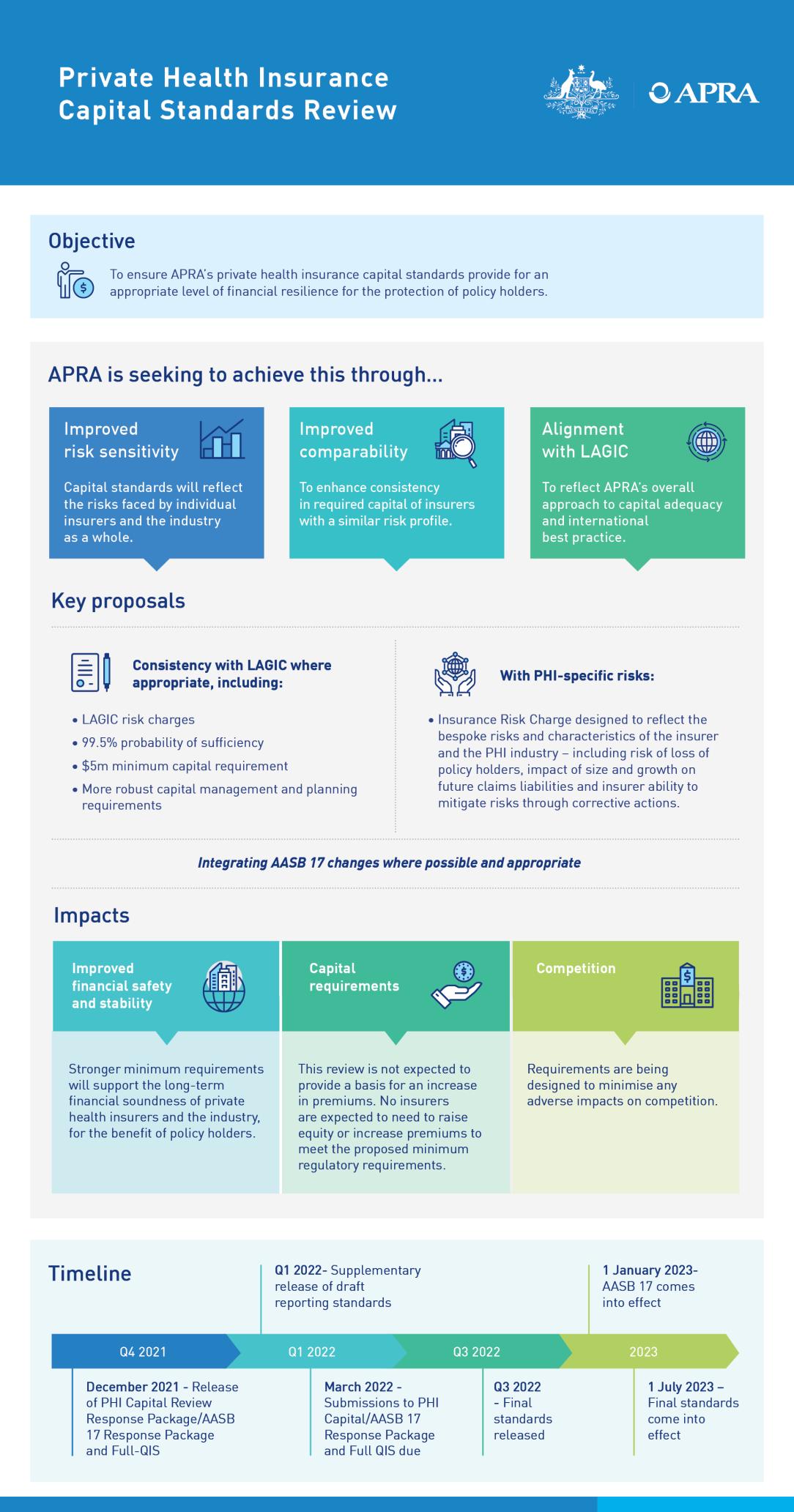APRA moves to strengthen capital standards in private health insurance
The Australian Prudential Regulation Authority (APRA) has commenced further consultation on measures designed to strengthen the capital framework for private health insurance (PHI).
APRA today released a response paper and draft prudential standards that include proposed reforms intended to increase the industry’s financial resilience and hence confidence that private health insurers can continue to pay all legitimate claims from policyholders even under severe stress.
The proposals increase minimum capital requirements, however the industry is very well-capitalised and already holds capital significantly in excess of the new proposed regulatory minimums. APRA’s assessment is that no insurer would need to increase premiums or raise equity to meet the higher minimum capital requirements.
The proposed new framework is based on the life and general insurance capital framework (LAGIC), but adapted to suit the different features of PHI. As a result, this consultation is closely linked to the consultation released earlier today on aligning the life and general insurance capital and reporting frameworks with new accounting standard AASB-17.
Deputy Chair Helen Rowell said: “APRA’s capital standards play an essential role in ensuring private health insurers have the financial resources to meet their commitments to policyholders, even in the event of unexpected loss or crisis.
“Although Australia’s private health insurance industry remains well capitalised, the PHI capital framework is currently less robust than the framework for other APRA-regulated insurance industries. It’s also not sufficiently sensitive to the specific risks health insurers face, especially at a time when industry profitability is being adversely impacted by an ageing membership profile and rising costs.
“These changes seek to address current weaknesses in the capital framework, and bring it in line with the framework we use for other insurance industries,” Mrs Rowell said.
Reforming the industry’s capital framework is the third and final phase of APRA’s PHI Roadmap, following the earlier completion of Phase 1 (risk management) and Phase 2 (Governance).
Consultation on the new capital framework will close on 31 March 2022, with APRA expecting to release the final standards in the second half of the year.
Copies of a response paper outlining the proposed new framework and the draft prudential standards are available on the APRA website at: Review of the private health insurance capital framework.

An accessible version of this infographic is available here.
Media enquiries
Contact APRA Media Unit, on +61 2 9210 3636
All other enquiries
For more information contact APRA on 1300 558 849.
The Australian Prudential Regulation Authority (APRA) is the prudential regulator of the financial services industry. It oversees banks, mutuals, general insurance and reinsurance companies, life insurance, private health insurers, friendly societies, and most members of the superannuation industry. APRA currently supervises institutions holding $9.8 trillion in assets for Australian depositors, policyholders and superannuation fund members.